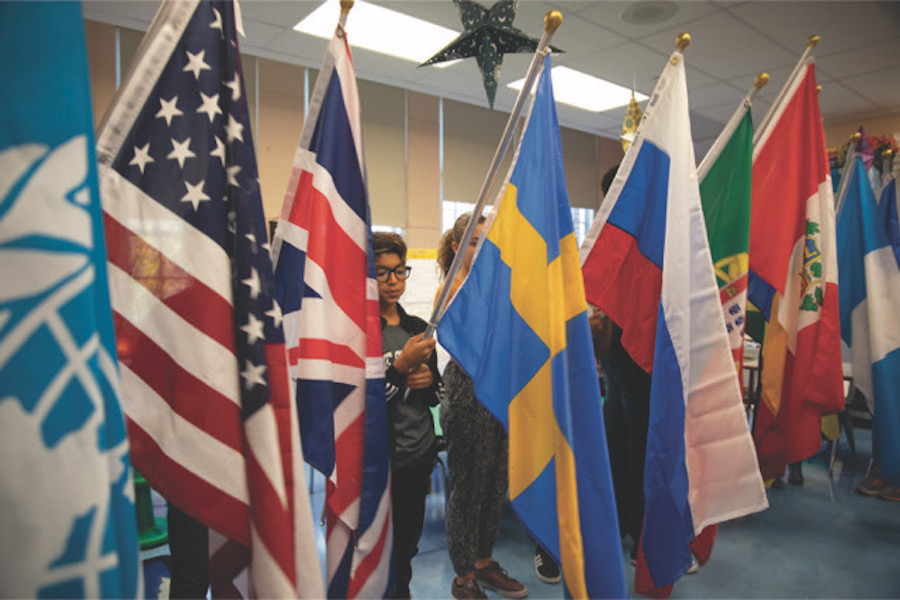A “global conversation” has just been launched by the United Nations with a universal invitation to people all over the world to join. It’s called UN75, and it marks the 75th anniversary of the international organization in 2020.
Starting this month, the campaign will initiate dialogues in many settings — from classrooms to boardrooms, parliaments to village halls. “The aim is to reach as many people as possible: to listen to their hopes and fears; and learn from their ideas and experiences,” according to the U.N. website. “Anybody can join the global conversation — physically or online, individually or as a group, in every region of the world.”
Why now? Because of the urgent need to create a shared vision of the future as a way to grapple with the climate crisis, growing inequality, new patterns of violence, and changes in population and technology. The conversation will be focused on the U.N.’s 17 sustainable development goals, requiring cooperation across borders, sectors, and generations.
Imagine having conversations with Zulus, Roma, South Africans, Ukrainians, Brazilians, Pygmies, Austrians, and Eskimos. What would you ask them? What are they likely to ask you? After a while, you might decide to branch out and to learn more — to identify topics on which you want their opinion and they want your opinion. You will discuss, learn, and debate.

Perhaps you want to learn from people who live on small island states how they are dealing with sea-level rise. Do they build sea walls? Do people move inland? Do people simply leave?
Imagine the questions and conversations. “How do you in the Netherlands create housing out in the ocean?” “What fish do you catch?” “I learned that you grow cassava in Angola. Did you know that we also grow cassava in Brazil? Let’s talk more and, maybe, go to the U.N. to make a presentation with other cassava farmers from around the world.” “Is your community, like ours, seeing a decline in bees? This decline poses a threat to agriculture everywhere. Let us get together and lobby to make pesticides illegal in the entire world.” “Can we simplify things with a global currency?” “What about a global language?”
“Can we agree there will be no wars?”
Surely, we will discuss the causes of inequality, racism, and sexism, and we suspect that in discussing these topics we will discredit them.
The U.N. is giving us an opportunity to create a global democracy. The world’s population is about 7.8 billion — so this would be a very, very big democracy. The U.N. is setting aside boundaries to throw open its doors to all the world’s people. We are the democracy. We set the agendas. We can change the world.
To join this initiative and throw your hat in the ring see www.un.org/UN75. For a toolkit with background information and suggestions for creating groups, see https://toolkit.un75.online/.
Sociologist Judith Blau, professor emerita at the University of North Carolina at Chapel Hill, now lives and writes in Wellfleet.
